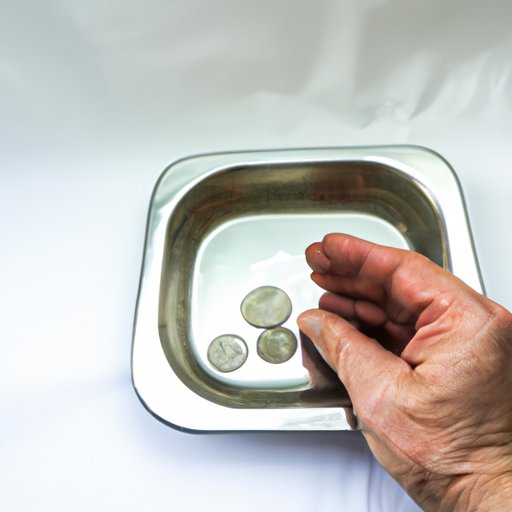
I. Introduction
Old coins can be a great way to connect with history, but over time they can become dirty and dull. Cleaning coins incorrectly can be detrimental to their value. Therefore, it’s essential to know how to effectively clean old coins. In this article, we will explore some tips and techniques for safely cleaning old coins.
II. Research
Before cleaning old coins, it’s essential to do some research. The type of coin and its composition will determine the appropriate cleaning method. Some coins are more fragile than others and require special care. Consulting a reputable coin collecting book or website can provide valuable information about a coin’s condition and value.
For instance, copper coins may require a different cleaning method than silver coins. To research, check the mint year and the country of origin.
III. Gentle Soaking
Gentle soaking is an excellent way to clean old coins, especially those that have not been cleaned in a long time. To create a soaking solution, mix distilled water with mild soap. Do not use tap water because it contains minerals that can damage coins. When soaking the coins, ensure that they are fully covered with the solution and that there is no air exposure. Leave the coins in the solution for a maximum of 10 minutes.
To dry the coins after soaking, gently pat them with a soft cotton towel and air dry them overnight.
IV. Use Non-Abrasive Materials
Using abrasive materials can damage old coins and reduce their value. Instead, use non-abrasive materials like cotton balls, soft-bristled toothbrushes, and microfiber cloths to clean coins gently. These materials are safe to use on coins and will not scratch or damage them. To clean the coins, gently rub them with the materials, taking care not to apply too much pressure.
V. Avoid Harsh Chemicals
Harsh chemicals like vinegar, lemon juice or bleach should be avoided when cleaning coins. These chemicals can cause corrosion and discoloration on coins. Coins are made of different metals that can react differently to chemicals. Chlorine, ammonia, and hydrogen peroxide are harsh chemicals that should be avoided when cleaning coins. If you are unsure about a particular chemical, it’s best not to use it.
VI. Do Not Rub
Rubbing old coins aggressively can cause scratches and diminish their value. When cleaning coins, it’s important to be gentle and take your time. Use a minimal amount of pressure and avoid rubbing the coins forcefully. The key is to be patient and let the cleaning process work naturally.
VII. Patience
Patience is the key when cleaning old coins. Rushing the cleaning process can cause irreversible damage. To avoid this, take the time to research, use gentle soaking methods, and avoid harmful chemicals. Be patient and allow the coins to dry naturally.
VIII. Conclusion
When it comes to cleaning old coins, the key is to be patient and gentle. Research the coins before cleaning, use gentle soaking and non-abrasive materials, avoid harsh chemicals, and take your time. Practice caution and patience, and you’ll safely clean your old coins without reducing their value.
Remember that cleaning coins is a delicate process, and a small mistake can significantly reduce their value. Use these tips and techniques with care, and your coins will retain their value for many years to come.





